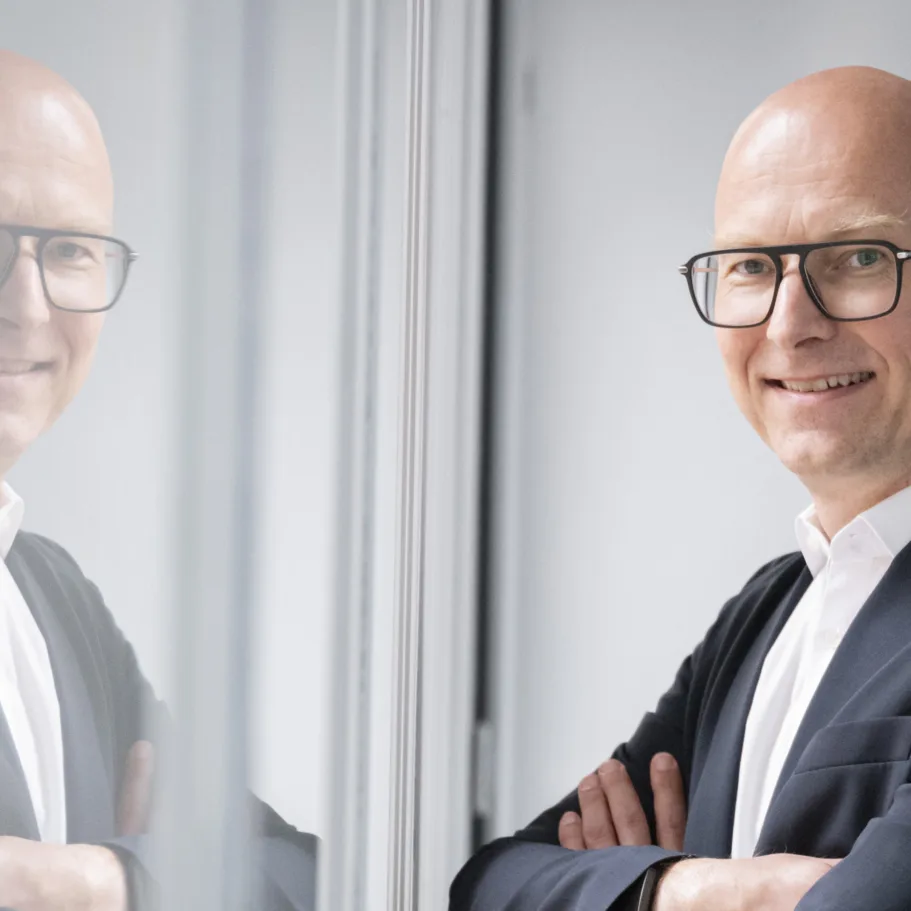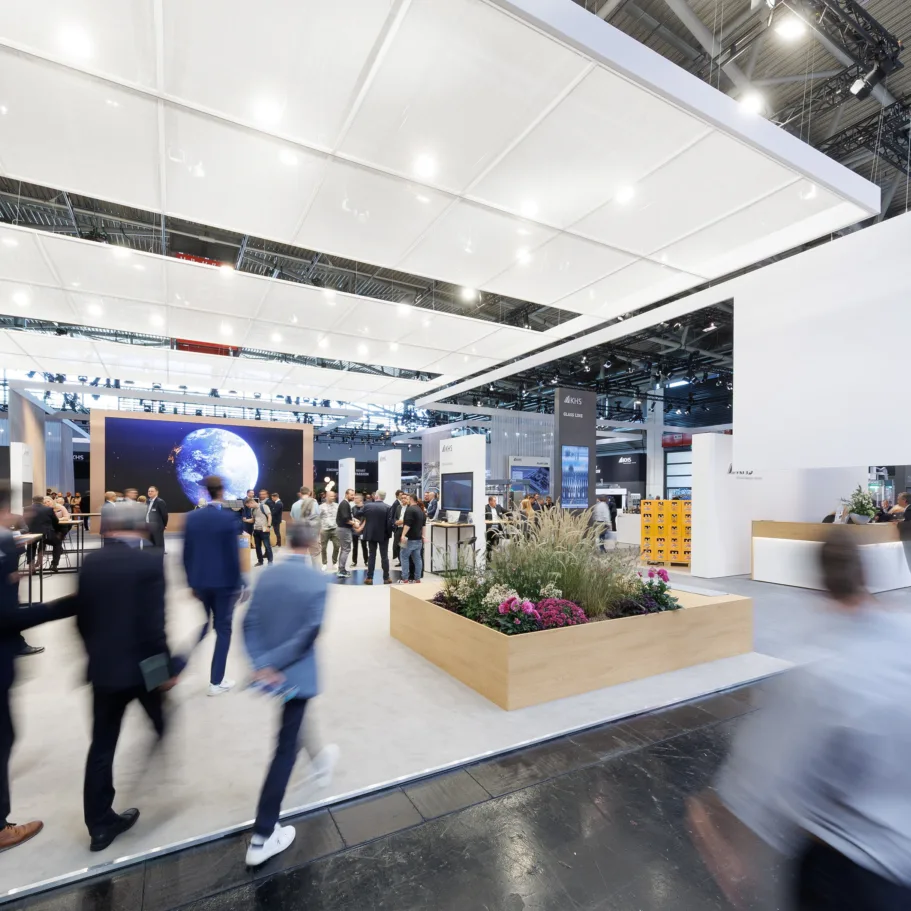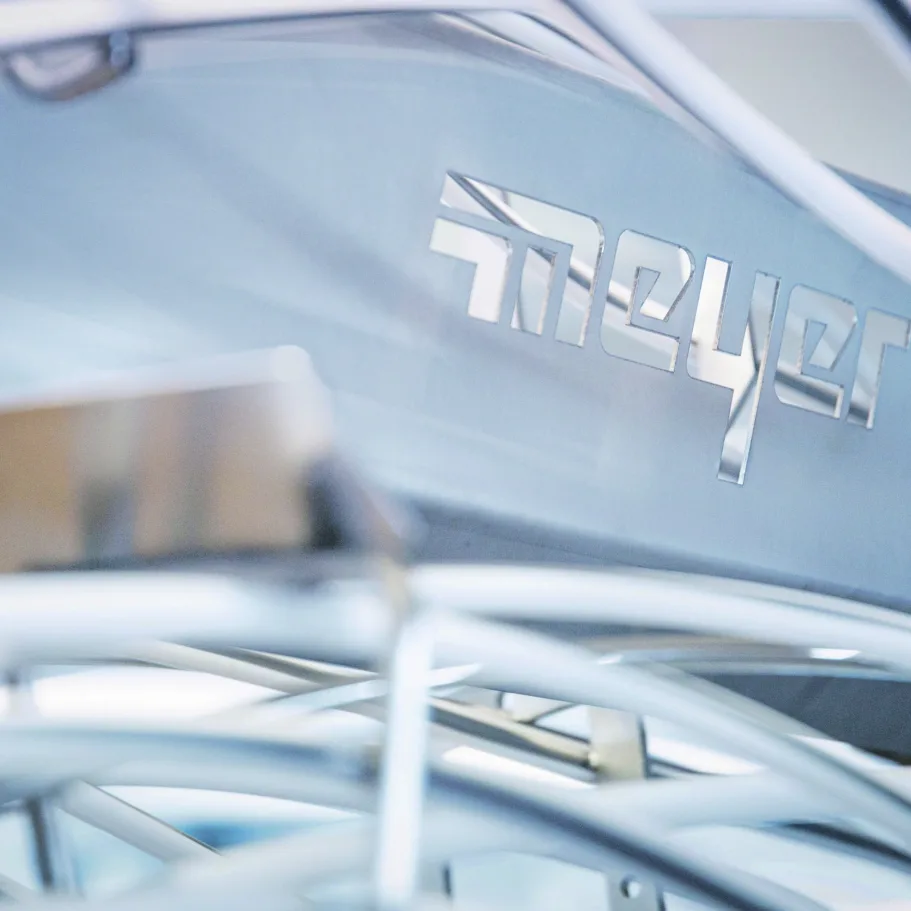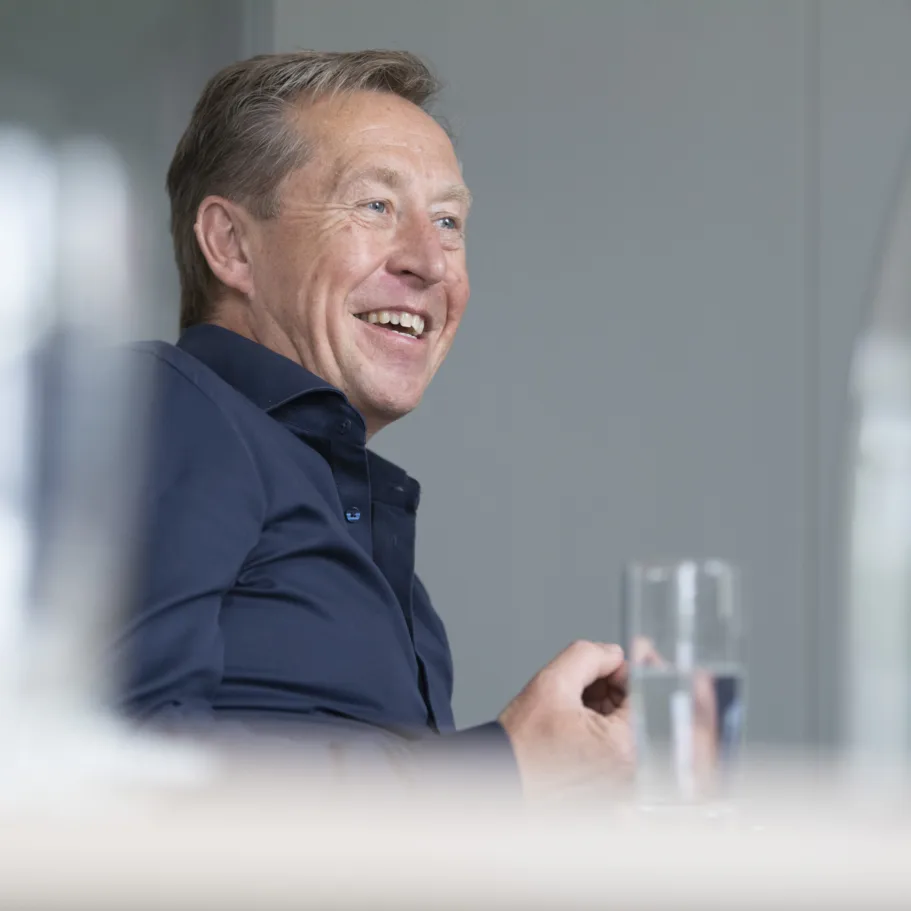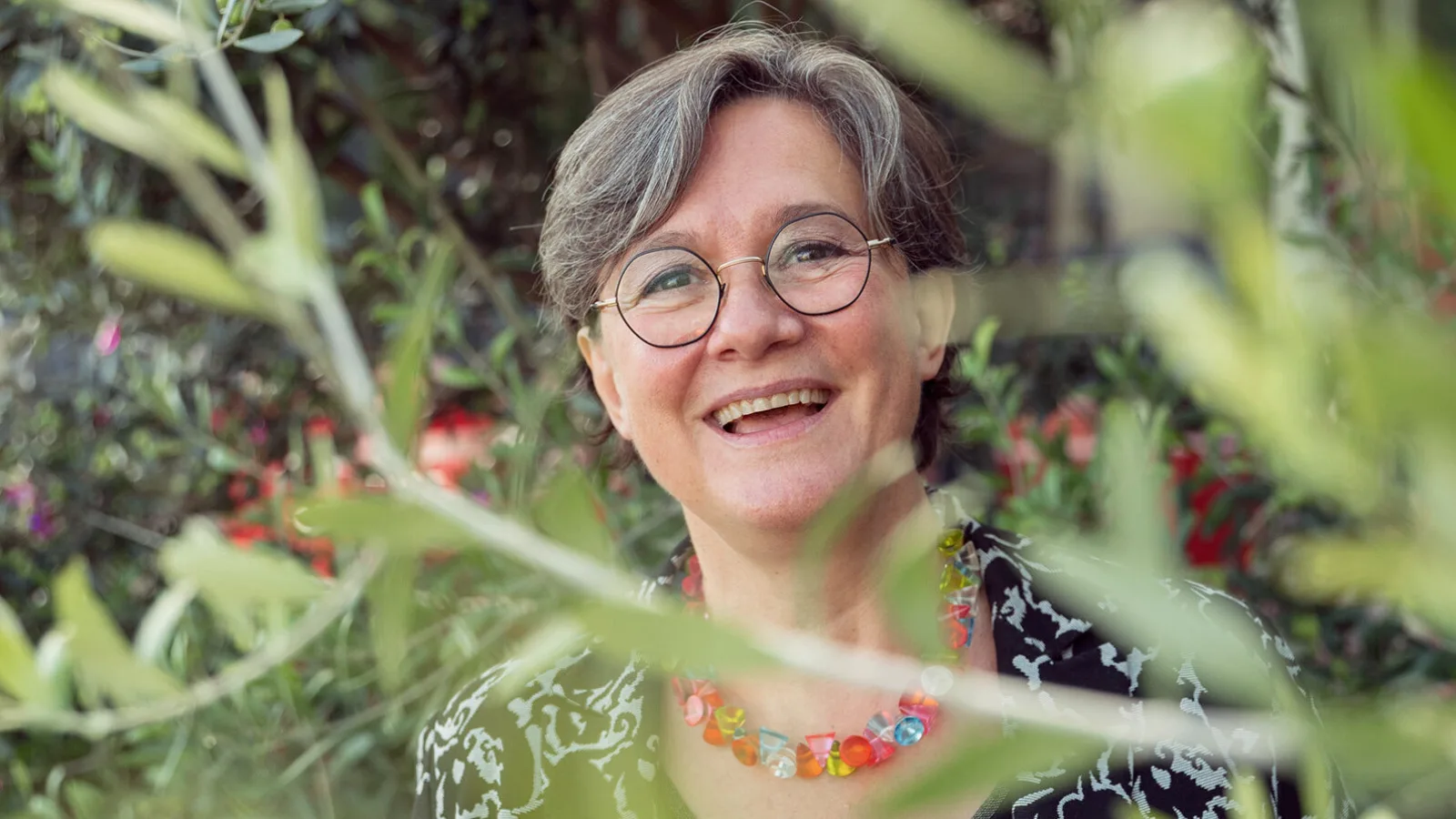
360° angle
Founded in 2007, today EcoVadis is the world’s largest provider of sustainability ratings. At the Paris headquarters we spoke to Valérie Touchon, who since day one has been part of the inner management circle, about the EcoVadis business model, its success and her personal views on sustainability.
Ms. Touchon, you’ve been active in the role of chief impact officer for two years now. Which tasks and responsibilities do you have in this position?
My main task in this job is to strengthen the impact our customers can have by using our products and services. Parallel to this, I’m responsible for sustainability at EcoVadis itself – for our carbon footprint and for adopting a sustainable procurement policy, among other topics. This is rather exciting, as my team and I now have to work on what we impart to our customers. We’re noticing that the questions we ask aren’t easy to answer and the measures that follow aren’t easily put into practice. I find this quite stimulating.
What motivated you, a woman of the first hour, to work in a company that rates whether others satisfy certain sustainability requirements or not?
Sustainability was already a big topic when we were starting out – except in procurement. When working as a sales representative, I realized companies were indeed already concerned about their own impacts and started analyzing their carbon footprints. However, it took us a long time to help them realize that 50 to 90% of their operating budget is spent on products or services from external partners. Of course, this spawned some questions: how well do I know my suppliers? How can I make sure that they comply with the ban on child labor or don’t buy products that are manufactured from what we call conflict minerals¹? Back then, these concerns were new and we were quick enough to spot this gap in the market. I liked the pioneering aspect of it all – the idea of being part of a new thing. And finally, the people – right from the start, we were joined by a team of exceptional people respecting our values and commitment, with a hands-on approach to the question of how we can drive positive change in the world in a really big, bold way.
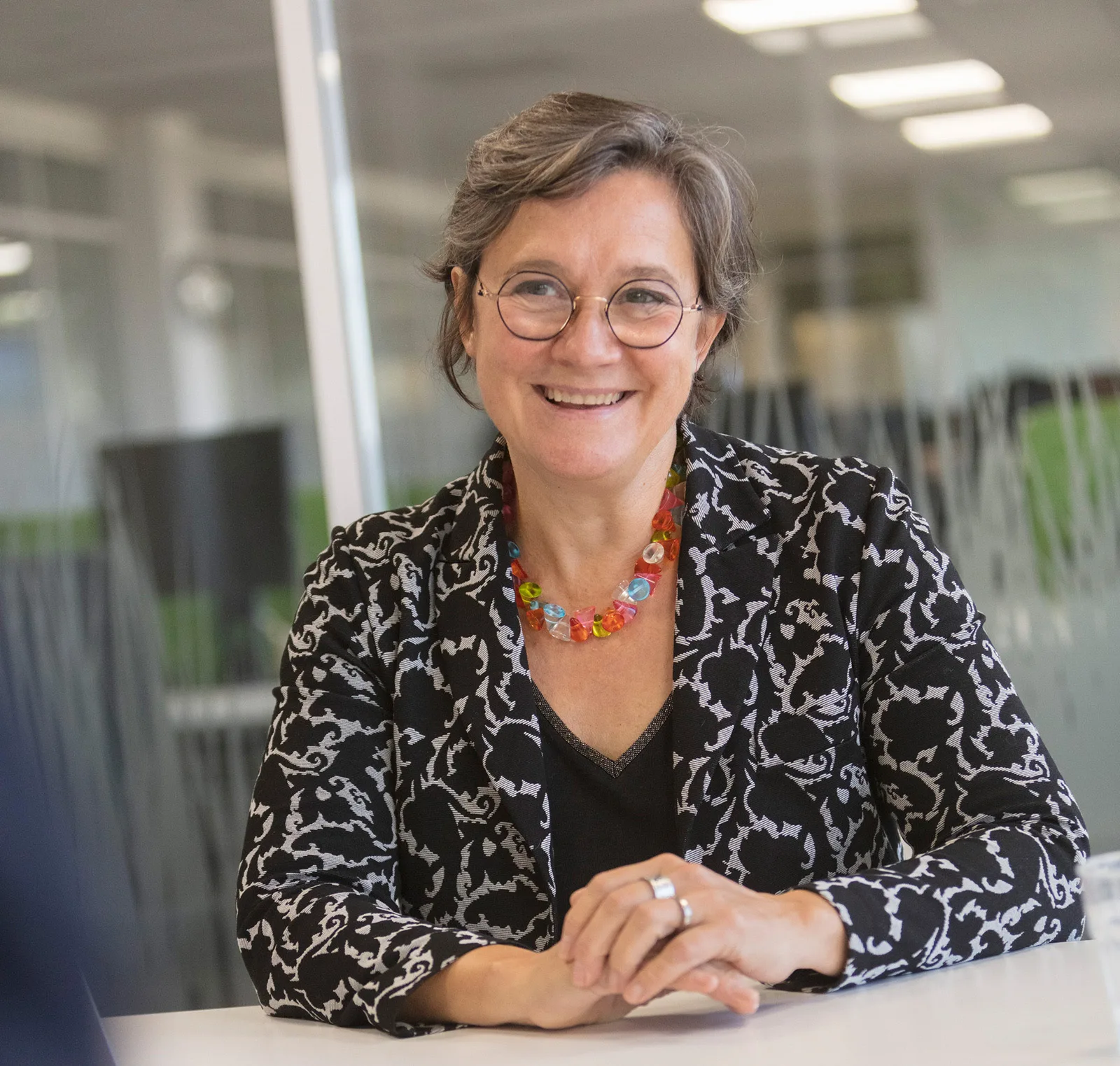
Profile
Valérie Touchon
French executive Valérie Touchon started her professional career as a sales representative, moving on to a headhunter role in the technology sector and spending two years in Poland, among other places.
Once back in France, in 2007 Touchon became one of the first five employees at EcoVadis, responsible for business development in the country.
From 2014 she headed the Customer Success team based in Paris and then one in New York. Touchon has been chief impact officer since 2021. She lives in Paris and San Francisco.
When you talk about procurement, do you mean the classic purchasing departments in large companies?
Yes, exactly. We have two types of customer. One category includes multinationals such as BASF, Bayer, L’Oréal or Verizon, to name but a few. We offer to help their procurement departments bring transparency to the sustainability of their supply chains. The second category consists of their suppliers whom we contact directly to carry out a detailed analysis. We share the results with the companies being assessed, as well as with those requesting the assessment. Both sides can then engage in a dialog as to which practices can be improved and how. This starts a virtuous cycle – something that is the original idea behind EcoVadis, which is changing business from the inside out in a sustainable manner.
How would you sum up the EcoVadis concept?
Continuous improvement that drives real change – as opposed to a compliance-only approach to do the minimum required by regulations and standards. Our rating system works on a different principle: there’s no end target to sustainability as the bar is always rising. Therefore, there’s always something to be done regarding the environment or social and ethical practices. The EcoVadis Scorecard gives companies an idea of where they currently are and where they could be headed. With these insights, our customers can continue to improve and advance.
Let’s talk about how technology supports your rating process.
We assess vast supplier networks of companies already committed to continuously improving their sustainability performance. We have a group of about 1,000 companies whose suppliers we evaluate. In the beverage industry, this includes Coca-Cola or Danone. Then we have rated suppliers who have to ask themselves how their supply chains are performing. All of this triggers a positive domino effect and we have over 125,000 rated companies to date.
Technology is the backbone here. We’re constantly investing in updating our solutions because not only do we have to keep up with the sheer number of rated customers but we also need to adapt to our customers as they change and mature, and so does the market under increasing regulatory scrutiny. Our rating system must be agile enough to swiftly respond to these changing forces.
“As opposed to a compliance-only approach to do the minimum required by regulations and standards, our concept is continuous improvement that drives real change.”
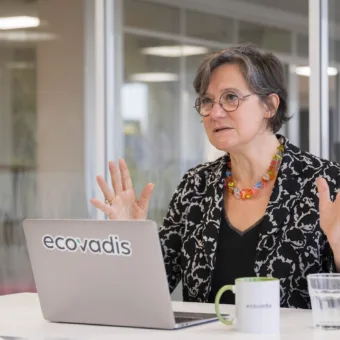
Chief impact officer, EcoVadis
Other than the EcoVadis Scorecard, what are the most important products and services you provide?
We’re currently transforming from a single-product to a multiple-product company, so it’s the perfect time to ask this question!
We need to do two things if we want to make an impact. Firstly, we need to engage a peak number of companies for a rating and improvement cycle. Secondly, once they’re part of our network, we need to provide them with data and information so that they can continuously optimize their sustainability practices. One product in our portfolio is IQ Plus, through which we can register hundreds of thousands of companies in order to assess their sustainability risk. A multinational like Bayer, for example, provides us with a list of around 50,000 suppliers. We feed this into our system which, based on a number of criteria, such as industrial sector, size and region, and with the help of all the data we’ve gathered in the 16 years of our existence, can assign a predictive level of risk. Our rating module supplements this initial risk analysis with a questionnaire which we can use to give more detailed and descriptive results. This is an extremely in-depth process that includes 21 criteria across four theme areas: that is environment, social practices, ethics and procurement. Not only do we take into account the data provided by suppliers; we also examine inputs from external sources such as NGOs, industrial associations and certification bodies from a 360° angle.
Recently, we also developed a dedicated CO2 rating module that includes a carbon calculator our customers can use to calculate their own footprint. On that one, our sweet spot is reaching those companies that have a low level of maturity in CO2 management.
How do you manage to keep tabs on a company that’s growing as fast as EcoVadis is?
On average, we’re seeing a growth of around 40% every year – both in turnover and the number of rated companies. This is indeed a challenge, but not one to complain about! We’ve been very lucky to employ extremely committed, efficient and professional people. Today, we have a team of around 1,700 personnel worldwide. While expecting flexibility and resilience from them, we also set great store by a good work/life balance. This is a key success factor. And we went for globalization early on, making English our corporate language after only two years in operation. We have people working here from all over the world and we’re represented in twelve countries also outside of Europe – the US, Hong Kong, Singapore, Japan and Australia, to name but a few.
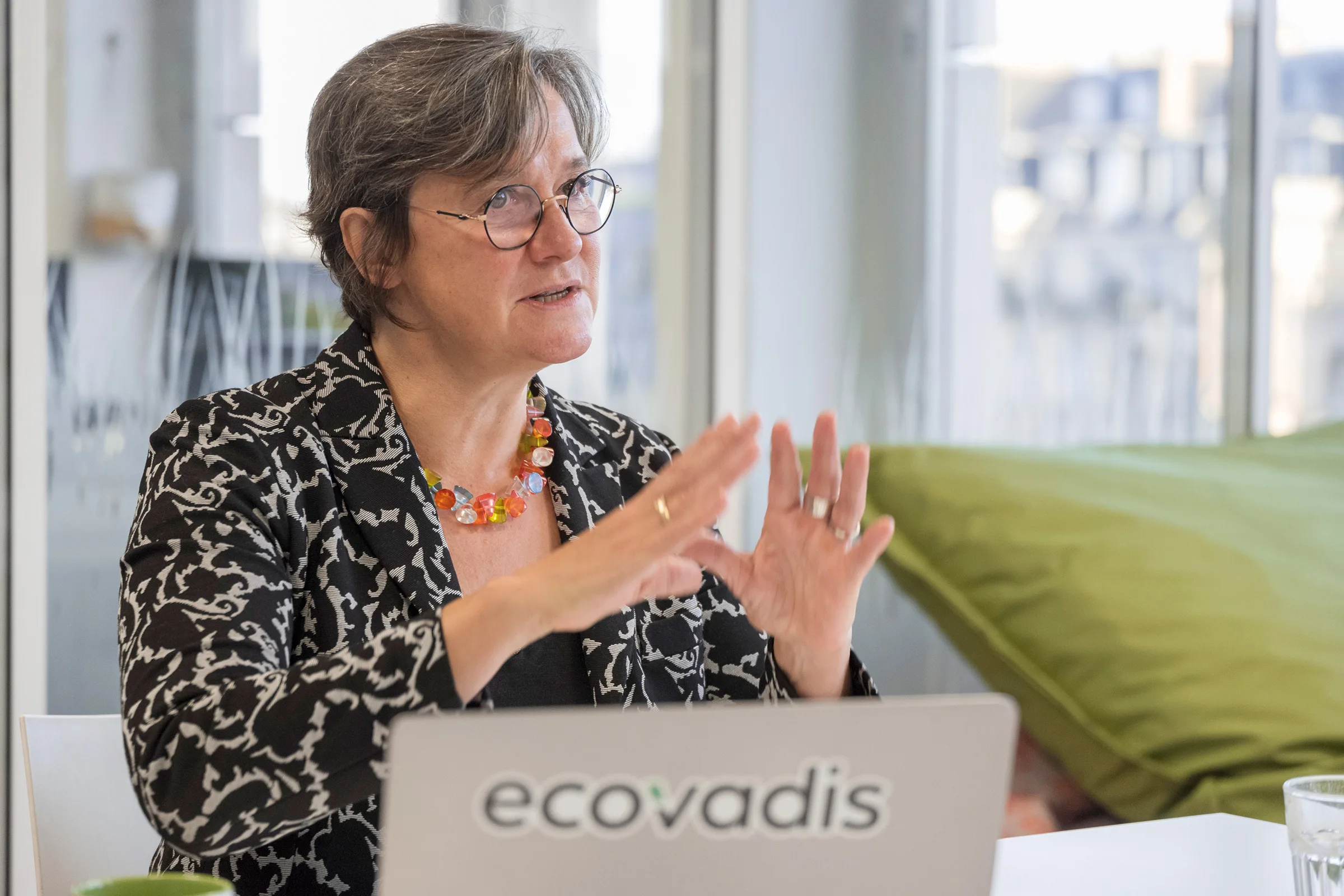
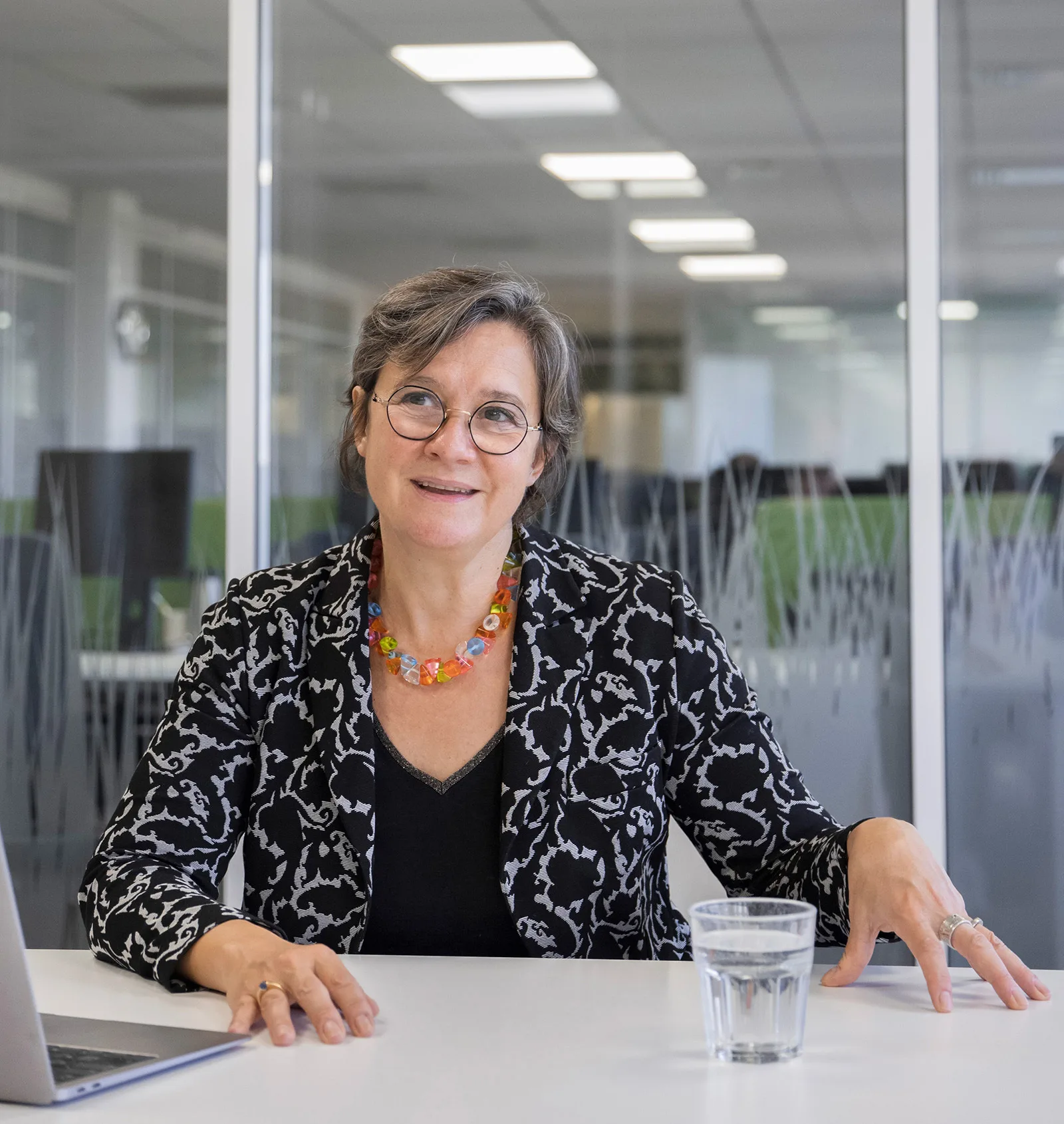
One of Touchon’s tasks is to prevent EcoVadis from being used by companies as a ‘greenwashing machine’.
How are the companies rated by EcoVadis distributed by region and sector?
First up, I’d like to say that the coronavirus pandemic and various geopolitical shifts have turned our extremely globalized world into a more regional one. Although this means a lot of work for our customers because they have to reorganize their supply chains, it’s good for us. As our history would have it, we’re of course strongly represented in Europe, but at the same time we’re also rating a large number of companies in China and across Asia, where we’re seeing dynamic growth. We’re rapidly increasing our market share in the US. Here, regulation at federal level is relatively weak, so much is left up to the individual states or to the companies themselves. It’s a varied landscape: California, for instance, has adopted more or less the same supply chain due diligence and disclosure regime on climate change as the EU is about to have. Some American companies are more advanced in these matters because they already recognize that transparency is essential to their success. In Africa EcoVadis isn’t yet active, though we see great potential there for the future.
What do you think needs to be done in certain sectors or regions for them to become more mature?
For a start, regulation simplifies a lot of things. Secondly, consumers and our broader society need to use their autonomy to demand specific behavior from manufacturers and commerce. Lastly, companies themselves can have a huge impact when it comes to changing things for the better once the cascading effects of their supply chain analysis kick in.
How do you ensure uniform rating standards despite the differences between the various sectors and regions?
This brings us to our assessment methodology. We carry out materiality analysis for companies from around 200 industry categories and, looking at best practices, we determine what’s a relevant benchmark for criteria like ethics, working conditions, avoidance of child labor and greenhouse gas emissions or waste management. The company size is also taken into account: the larger the company is, the more impact and responsibility it has. A country can also be a factor – even if there are regulations the world over, they’re not always enforced with the same rigor. Thus for some countries we add criteria concerning human rights, for example. EcoVadis uses ISO 26000², GRI³ guidelines and ILO⁴ standards as well as other overarching international norms as a cornerstone of our assessment methodology. When we rate a company for the first time, however, we draw up a questionnaire that’s tailored specifically to its individual parameters. There’s much complexity behind what we have as a seamless process.
“What companies claim to be their contribution towards a better planet and a better society is often simply not credible.”
Chief impact officer, EcoVadis
Are there limits as to how precise and objective your ratings can be and what do you do to overcome these?
We set high standards for our rating system. For example, we have a dedicated team that monitors the quality of our services regarding consistency and accuracy. We also check if all statements have supporting evidence and documentation. And this involves an additional step where we reach out directly to certification bodies to check that a certificate hasn’t expired and is still valid.
Even if our verification process is extremely precise, it’s not perfect. We can never be 100% certain that a company actually does what it says. Greenwashing is and always will be an issue here and what companies claim to be their contribution towards a better planet and a better society is often simply not credible.
How do you make sure that your customers don’t use their rating for greenwashing?
We have a medal recognition program that we use to reward companies that reach a certain score threshold. Everyone claims to be sustainable nowadays so we need to ensure that our medal system is well monitored and that medals are only awarded to those with outstanding practices. This requires us to increasingly tighten our standards so that we can uphold the idea of continuous improvement. We must prevent ourselves from being used as a ‘greenwashing machine’. That would be disastrous to our reputation as a leading provider of sustainability ratings.
It’s thus all about quality, control and governance. We’ve separated our rating department from the rest of the company to ensure the best quality and impartiality needed but, that said, there’s no absolute assurance here, even if we do invest a lot of time, money and resources in minimizing the risk of error of judgment.
In countries like Germany, people are saying how pointless it is to change your own behavior as the rest of the world continues to produce waste and emit CO2 as if we weren’t in the middle of a climate crisis. How do you deal with skeptics and pessimists like these?
It’s part of our job to educate them. We firmly believe that the economy will change – and by focusing on supply chains we can multiply the positive effect of this change. As in every other transformation project, there will always be 10% that deny climate change and another 10% that say we urgently need to take action. The rest is largely indifferent. It’s our task to use our means to change it and to convince people to do business more sustainably. But that’s a long-term objective and I’m not sure time is what we have. I hope, however, that increasing regulation, especially in Europe, will speed up the process by changing the rules of the game.
Solar panels on rooftops, LED lights instead of conventional lighting, business trips by train and not by plane – are all these just fig leaves? Where are the really effective levers that will help us make definite progress when it comes to climate protection?
By no means – every little bit helps and each and every sector has to assume responsibility. Think of agriculture, for instance: we can considerably cut methane emissions by changing what we eat or how we grow, harvest and package food. Can we use regenerative farming and source more eco-friendly or recyclable materials? There’s so much companies can do and ultimately individuals, too, in the choices they make and the action they take – both in their roles at work and in their personal lives.
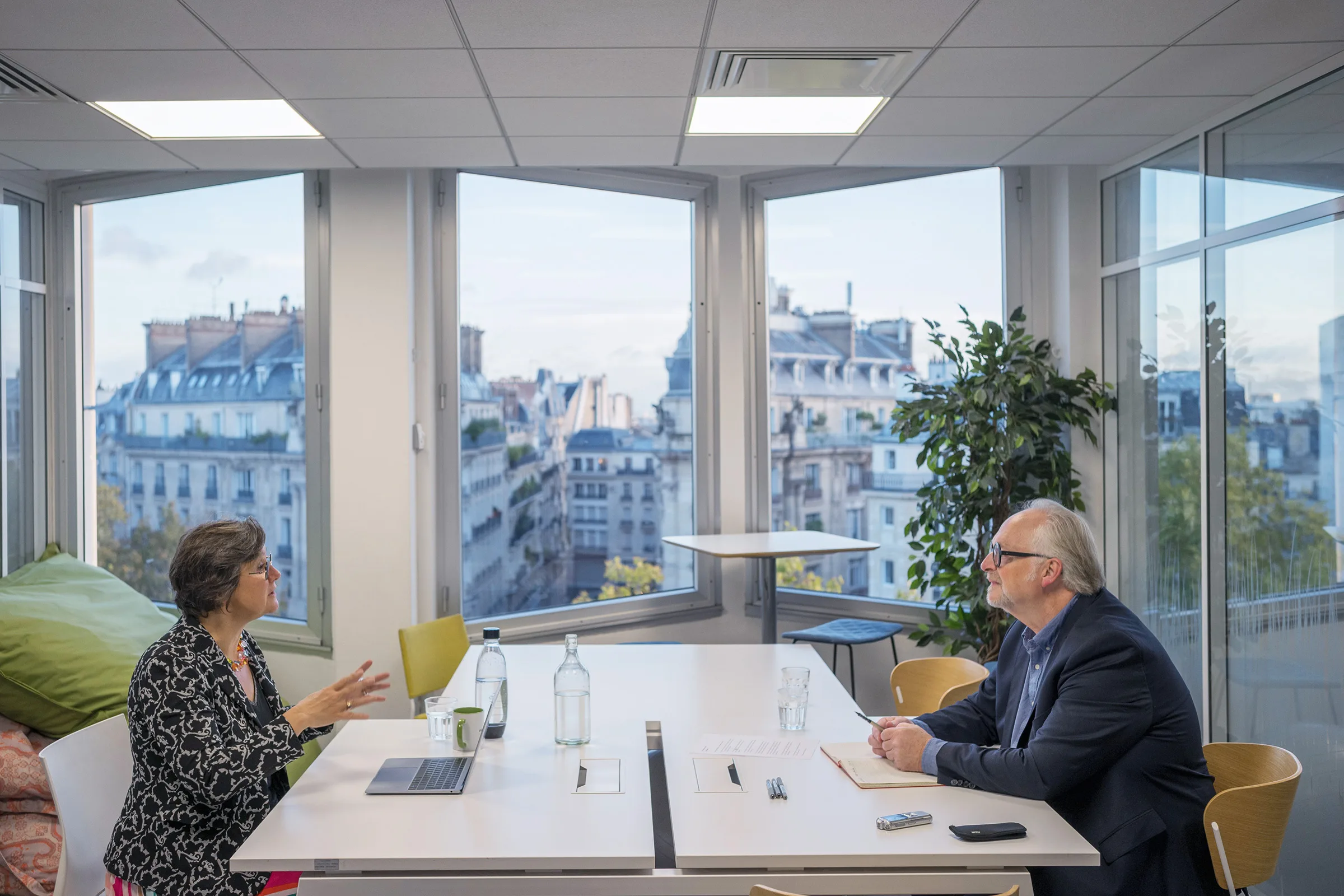
Chief impact officer Valérie Touchon in conversation with KHScompetence editor Stuart J. Nessbach at the EcoVadis headquarters in the center of Paris, France.
How will the new EU directive on corporate sustainability reporting (CSRD), which will quadruple the number of reporting companies by 2026, impact your business model?
To be precise, there are two directives which we greatly benefit from. One of them relates to due diligence in supply chains. This has a direct impact on our operations, as companies are now mandated to analyze their partners’ ESG⁵ attributes for value chain transparency. The second directive, the CSRD you just mentioned, explicitly prescribes what companies need to disclose, yet that depends on the size of the business. These two laws significantly add to a cohort of companies that already have to report. Good for us and our competitors alike.
Where do you see EcoVadis in ten to 15 years when more and more companies will have reached net zero?
Sustainability isn’t just about compliance. It’s a journey, and I don’t believe that we’ll solve the problem of climate change in ten to 15 years. That’s one side of things. The other is that we’ve recently had a very interesting discussion with senior purchasers at some of our biggest customers. They’re pushing their suppliers to disclose their greenhouse gas emissions and specify reduction targets, although they’re convinced that their efforts will only bear fruit if they can persuade their suppliers to pay their employees a living wage. After all, a person can’t change their consumer habits and carbon footprint if they don’t have enough money. I find this exceedingly clever and forward-thinking but also bold. Because if you demand that your suppliers raise their wages, you’ll end up having to pay more for their goods and services.
ESG is therefore not just about CO2 being a deadly burden on humankind. You also have to think about the social aspects of climate change: people move from one place to another, contract diseases – it’s all related. I assume that we’ll be around for as long as we have a world to exist in.
“I’m cautiously optimistic because once change sets in, there’s no stopping it.”
Chief impact officer, EcoVadis
Despite all this, do you personally still have hope for our climate?
I’ve read the IPCC report and I’m concerned but hopeful nevertheless. As we’re monitoring the change for the better, we can see that things are moving but not fast enough – that much is obvious. Still, I’m cautiously optimistic because once change sets in, there’s no stopping it.
What does sustainability mean for you personally and how has your behavior changed in this respect over the last 15 years?
I’m from a generation that used to eat processed food and meat and flew from A to B without thinking twice about it. A lot’s happened since then. I had three children who are now 28, 26 and 23. All three of them are real activists who’ve changed the way I see things. And 16 years ago, I joined EcoVadis where I learned a lot that I wasn’t clear on before. I’ve spoken to hundreds of customers over the years and of course with people at the company as well. Many of them are the same age as my children are and just as passionate and committed in what they do. This inspires change in me every day.
1. ¹ Conflict minerals are tin, tantalum, tungsten and gold, often mined in developing countries under dubious conditions.
2. ² ISO 26000 guidelines help companies to put principles of social responsibility into practice.
3. ³ GRI guidelines are a common language for organizations to communicate their ecological, economic and social impact.
4. ⁴ ILO norms are international labor and social standards that take the form of recommendations covering labor rights, working conditions, health and safety protection and more.
5. ⁵ ESG = Environmental, Social and Corporate Governance – an instrument of control for the financial services sector in the EU used to rate sustainable investments with regard to the consideration of environment, sustainable and social issues by companies and other corporations.
